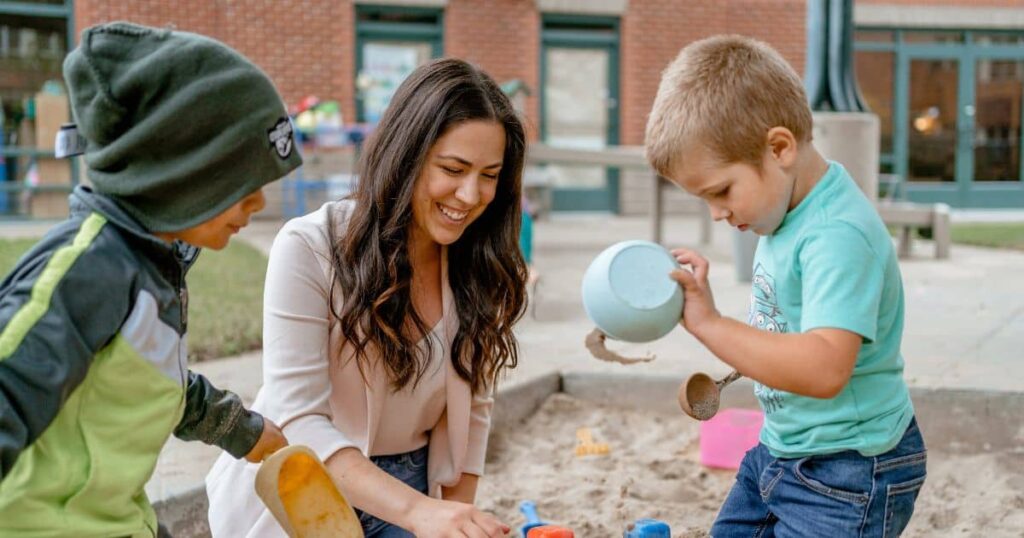Alexis Merculief, a human development and family studies PhD student, is interested in how features of the built and social environment influence cognitive development — specifically, executive function — in early and middle childhood, as well as how community resilience and cultural identity can promote long-term health and academic achievement for children from underserved populations.
Alexis is an Aleut tribal member and previously worked to promote health and well-being in American Indian and Alaska Native children through youth program development at an AI/AN health organization in the Northwest.
Alexis recently received the Diversity Supplement Award from the National Institutes of Health for her dissertation, “Promoting executive function in children from American Indian, Alaska Native and other underserved races/ethnicities: Examining risk and resilience factors in the environment.”
“I am looking at risk factors in the built and social environment,” Alexis says. “Such as toxic exposure and neighborhood risk factors, how they influence childhood cognition for kids from underserved racial/ethnic backgrounds, and how features of community and culture can be protective for the development of these cognitive skills despite the presence of these risk factors.”

After completing Oregon State’s HDFS PhD program, Alexis intends to stay in academia.
“I plan to continue my research promoting community and cultural resilience in underserved communities, as well as mentoring students from these communities as a university professor,” Alexis says.
Transcript of Alexis Merculief describing her experience in Oregon State’s HDFS PhD program
00:00 – 00:10 Hi, my name is Alexis Merculief and I’m in my fourth year here in the human development and family studies program at Oregon State University.
00:11-00:28 I have a background in psychology and I studied for my undergrad at Seattle Pacific University after which I actually worked for four years at a community-based organization that serves American Indian and Alaska Native people.
00:29-00:47 I come from an Aleut tribal background and the work was really fundamental in helping me shape my ideas about my career and my future directions. I always knew that graduate school was in my future but wasn’t quite sure where to go.
00:48-01:17 When I found Oregon State University’s program in HDFS, I was really drawn to the program because when I stepped on the campus, first of all, I could feel a really collaborative nature and a really supportive environment in our program between the faculty, the faculty and students and amongst the students themselves. That’s been really fundamental in helping me throughout my graduate journey here.
01:18- 01:43 And then secondly, I love the focus in our program and the emphasis and understanding about the importance of context in human development and how things like the family context, the cultural context, the societal context, even the historical context, how much that really plays a role in children’s development.
01:43-02:32 Specifically the lab that I’m working in right now is with Megan McClelland and we study the cognitive skills that help young kids regulate their behavior and emotion. These are called executive function skills and they’re things like working memory inhibitory control and cognitive flexibility.
In our lab, we get to go in the field, which I love, and play games with kids doing assessments of their executive function and then we look at how their executive function skills can help them get ready for kindergarten and can help them succeed academically, and we follow these kids longitudinally to measure these effects.
02:32-02:40 We’re also working on different executive function boosting interventions that we can do in the classroom with teachers as well.
02:40-02:53 Another thing that I love about Oregon State University is the opportunity to work with different professors and get opportunities that are outside of your lab.
0:2:53-03:10 Right now, I’m doing really interesting work with John Geldhof in looking at different cultural context and definitions of positive youth development in Kenya in Kenyan youth.
03:10-3:20 I’m also working on translational research practices and policy in Oregon’s child care workforce and child care system with Megan Pratt. So, both of these have helped me develop my skills in really unique ways and given me glimpses into what my future could look like as a researcher.
03:20-04:11 For my personal interest moving forward, I am really interested in learning more about how things like language and culture intersect with the development of executive function in early and middle childhood and how as kids come to you know, interpret and understand their cultural and community values, how that can bring them resilience despite different factors they might be experiencing in their lives like poverty or trauma and how these things can really be protective for children from all backgrounds.
04:11-04:45 Specifically, I really do hope to work with my community and do more research helping honor and respect native parenting practices and native cultural values and helping support communities to be able to show just how valuable and just how beneficial our culture can be for the development of our children and the next generation. Thanks for your time and your interest in our program.
Learn more about Oregon State’s HDFS PhD program.